Robert Merrill, London Festival Orchestra & Stanley Black - Americana (1965)
- 26 Oct, 16:16
- change text size:
Facebook
Twitter
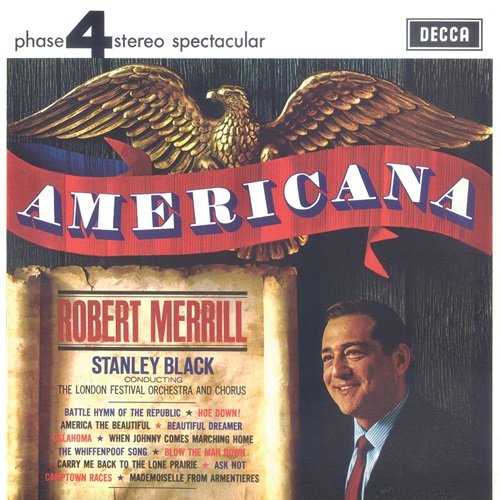
Artist: Robert Merrill, London Festival Orchestra, Stanley Black
Title: Americana
Year Of Release: 1965
Label: Decca Music
Genre: Jazz, Pop, Classical
Quality: Mp3 320 / Flac (tracks)
Total Time: 43:01
Total Size: 107/263 Mb
WebSite: Album Preview
Tracklist:Title: Americana
Year Of Release: 1965
Label: Decca Music
Genre: Jazz, Pop, Classical
Quality: Mp3 320 / Flac (tracks)
Total Time: 43:01
Total Size: 107/263 Mb
WebSite: Album Preview
01. Battle Hymn Of The Republic 4:34
02. America The Beautiful 4:09
03. Hoe Down! 4:22
04. Beautiful Dreamer 3:35
05. Oklahoma 3:55
06. Mademoiselle From Armentieres - When Johnny Comes Marching Home 4:03
07. Camptown Races 3:44
08. Carry Me Back To The Lone Prairie 3:10
09. Blow The Man Down 3:23
10. The Whiffenpoof Song 3:35
11. Ask Not 4:31
American baritone Robert Merrill, born Moishe Miller in Brooklyn on June 4, 1917, wavered -- in genuine New Yorker fashion -- between a professional baseball career and one in opera before being pushed into vocal studies by his mother. During an intensive period of study with vocal coach Samuel Margoles, Merrill worked as a pop singer at a Catskills resort to gain experience; he occasionally included the famous "Largo al factotum" from Rossini's Il Barbiere di Siviglia in his programs, earning great applause. Undiscouraged by his failure to win his first Metropolitan Opera audition, he continued to sing; two years later, auditions director Wilfrid Pelletier asked him to try again. This time he was ready; as a winner of the Metropolitan Auditions of the Air, he made his Metropolitan Opera debut on December 15, 1945, as Germont père in La Traviata, opposite the Violetta of Licia Albanese and Richard Tucker's Alfredo. It was a role he was also privileged to sing under Arturo Toscanini.
Despite immediate audience popularity and the enthusiasm of Met management, Merrill pursued his career cautiously, staying with less demanding parts -- Renato in Un Ballo in maschera, Rodrigo in Don Carlo, Valentin in Faust, and Marcello in La bohème -- until he felt prepared for such larger roles as the Count di Luna in Il Trovatore, Barnaba in La Gioconda, Amonasro in Aida, and, eventually, Iago in Verdi's Otello. Large or small, nearly everything he sang made an indelible impression. For instance, his Marcello for Sir Thomas Beecham's 1956 recording of La bohème, with de los Angeles and Björling, brings interest and character to a part often eclipsed by the principals. Gradually, his repertory broadened to include some 20 roles, and over a career of 30 years, he was heard at the Met 750 times. Merrill's most notable foreign appearances were both as the elder Germont (a mainstay) -- in Venice in 1961, and at London's Covent Garden in 1967.
Escamillo, in Carmen, has been one of Merrill's most spectacular characterizations -- one which, at the Met, he came to own, so to speak; he recorded the role in 1959 opposite the legendary Carmen of Risë Stevens, with Jan Peerce as Don José. Fritz Reiner conducted. Five years later he repeated his triumph in another Carmen for Herbert von Karajan, with Leontyne Price and Franco Corelli. Among other superstar recordings from the Met's Golden Age, Merrill's lustrous baritone graced major roles in Il Barbiere di Siviglia, Cavalleria Rusticana, I Pagliacci, Il Trovatore, Rigoletto (twice), La Traviata, and Sir Georg Solti's 1962 Aida with Leontyne Price, Rita Gorr, and Jon Vickers -- often cited as among the half-dozen or so greatest takes on this oft-recorded perennial. In addition to the Beecham recording, he also appeared in a notable disc version of La bohème opposite Anna Moffo and Richard Tucker, conducted by Erich Leinsdorf. It goes without saying that his work was a vital part of what made the Met's Golden Age so golden; he was highly valued there for his vigorous, powerful, and technically unshakable singing, if not for his acting skills (which were never a priority). In 1993, he was awarded the United States Medal of Arts.
Merrill recalls, as an eight-year-old, having been let in to the outfield to see Babe Ruth play. "Well, he was the Caruso of baseball and I never forgot that feeling." Appropriately, in 1986, for the Yanks' opening game at Yankee Stadium, Robert Merrill became the first person ever to both sing the Star Spangled Banner and throw out the first ball. He continued to appear at Yankee Stadium occasionally until a few years before his death on October 23, 2004.
______________________
Stanley Black is well-known both as a conductor and composer, although he began his career as quite a talented jazz pianist and arranger. As a conductor, he led various ensembles ranging from dance bands to symphony orchestras; as a composer, he wrote numerous film scores, title themes for radio shows, and other works.
Black began studying piano at the age of seven. He began composing in his pre-teens, enjoying the distinction at 12 of having his first work performed by the BBC Symphony Orchestra during a broadcast concert. Black soon began doing jazz arrangements and won a competition with one in 1929 sponsored by the jazz publication Melody Maker. By this time, he was already a brilliant jazz pianist and soon began to appear on recordings with the bands of Harry Roy and Lew Stone. American artists Louis Armstrong and Coleman Hawkins, on tour in England, engaged him to play on their recordings. Black developed a reputation in the 1930s mainly for his jazz pianism and arranging, but when on tour in South America with Harry Roy's band in 1938, he became strongly attracted to Latin American music, thereafter becoming identified with it in numerous performances and recordings. He signed a contract with Decca Records in 1944 and began regularly appearing on recordings over the next several decades. Among the many album titles from his early years are Jerome Kern's Symphonic Suite, Some Enchanted Evening, Festival in Costa Rica, Cuban Moonlight, Music of Cole Porter, and Sophisticate in Cuba. Black's initial recording career with Decca coincided with his appointment as conductor of the BBC Dance Orchestra in 1944, a post he held until 1952. In 1947, he began writing film scores and eventually became music director on many film projects as well. Some of his better-known film scores include It Always Rains on Sunday (1947), Mr. Potts Goes to Moscow (1952), Wonderful to Be Young! (The Young Ones in the U.S.; 1961), and The Long and the Short and the Tall (1961), where he wrote both the music score and supervised the musical direction. He was associated with more than 100 films either as composer, music director, or both. His last effort as a film composer came with the 1977 Valentino. In 1968, Black accepted the appointment as conductor of the BBC Northern Ireland Orchestra for one season. He also briefly served as associate conductor of the Osaka (Japan) Philharmonic Orchestra, beginning in 1971. He continued to appear as guest conductor throughout the 1970s and 1980s with a variety of orchestras. During this time, he also continued to make recordings for Decca, his efforts including Fiddler on the Roof and a four-volume series of popular film score excerpts entitled Film Spectacular. Black was an immensely popular figure throughout his career in England and was cited in 1986 for his artistic achievements when he was conferred an Officer of the Order of the British Empire. He remained active in the 1990s as a conductor. Among his last appearances was a charity concert in Barbican Hall in 1994, where he was joined by violinist Stéphane Grappelli. Many of Black's recordings have been reissued in the early 2000s, including Music of Irving Berlin and Jerome Kern (2000), and Gershwin Goes Latin (2002).
Despite immediate audience popularity and the enthusiasm of Met management, Merrill pursued his career cautiously, staying with less demanding parts -- Renato in Un Ballo in maschera, Rodrigo in Don Carlo, Valentin in Faust, and Marcello in La bohème -- until he felt prepared for such larger roles as the Count di Luna in Il Trovatore, Barnaba in La Gioconda, Amonasro in Aida, and, eventually, Iago in Verdi's Otello. Large or small, nearly everything he sang made an indelible impression. For instance, his Marcello for Sir Thomas Beecham's 1956 recording of La bohème, with de los Angeles and Björling, brings interest and character to a part often eclipsed by the principals. Gradually, his repertory broadened to include some 20 roles, and over a career of 30 years, he was heard at the Met 750 times. Merrill's most notable foreign appearances were both as the elder Germont (a mainstay) -- in Venice in 1961, and at London's Covent Garden in 1967.
Escamillo, in Carmen, has been one of Merrill's most spectacular characterizations -- one which, at the Met, he came to own, so to speak; he recorded the role in 1959 opposite the legendary Carmen of Risë Stevens, with Jan Peerce as Don José. Fritz Reiner conducted. Five years later he repeated his triumph in another Carmen for Herbert von Karajan, with Leontyne Price and Franco Corelli. Among other superstar recordings from the Met's Golden Age, Merrill's lustrous baritone graced major roles in Il Barbiere di Siviglia, Cavalleria Rusticana, I Pagliacci, Il Trovatore, Rigoletto (twice), La Traviata, and Sir Georg Solti's 1962 Aida with Leontyne Price, Rita Gorr, and Jon Vickers -- often cited as among the half-dozen or so greatest takes on this oft-recorded perennial. In addition to the Beecham recording, he also appeared in a notable disc version of La bohème opposite Anna Moffo and Richard Tucker, conducted by Erich Leinsdorf. It goes without saying that his work was a vital part of what made the Met's Golden Age so golden; he was highly valued there for his vigorous, powerful, and technically unshakable singing, if not for his acting skills (which were never a priority). In 1993, he was awarded the United States Medal of Arts.
Merrill recalls, as an eight-year-old, having been let in to the outfield to see Babe Ruth play. "Well, he was the Caruso of baseball and I never forgot that feeling." Appropriately, in 1986, for the Yanks' opening game at Yankee Stadium, Robert Merrill became the first person ever to both sing the Star Spangled Banner and throw out the first ball. He continued to appear at Yankee Stadium occasionally until a few years before his death on October 23, 2004.
______________________
Stanley Black is well-known both as a conductor and composer, although he began his career as quite a talented jazz pianist and arranger. As a conductor, he led various ensembles ranging from dance bands to symphony orchestras; as a composer, he wrote numerous film scores, title themes for radio shows, and other works.
Black began studying piano at the age of seven. He began composing in his pre-teens, enjoying the distinction at 12 of having his first work performed by the BBC Symphony Orchestra during a broadcast concert. Black soon began doing jazz arrangements and won a competition with one in 1929 sponsored by the jazz publication Melody Maker. By this time, he was already a brilliant jazz pianist and soon began to appear on recordings with the bands of Harry Roy and Lew Stone. American artists Louis Armstrong and Coleman Hawkins, on tour in England, engaged him to play on their recordings. Black developed a reputation in the 1930s mainly for his jazz pianism and arranging, but when on tour in South America with Harry Roy's band in 1938, he became strongly attracted to Latin American music, thereafter becoming identified with it in numerous performances and recordings. He signed a contract with Decca Records in 1944 and began regularly appearing on recordings over the next several decades. Among the many album titles from his early years are Jerome Kern's Symphonic Suite, Some Enchanted Evening, Festival in Costa Rica, Cuban Moonlight, Music of Cole Porter, and Sophisticate in Cuba. Black's initial recording career with Decca coincided with his appointment as conductor of the BBC Dance Orchestra in 1944, a post he held until 1952. In 1947, he began writing film scores and eventually became music director on many film projects as well. Some of his better-known film scores include It Always Rains on Sunday (1947), Mr. Potts Goes to Moscow (1952), Wonderful to Be Young! (The Young Ones in the U.S.; 1961), and The Long and the Short and the Tall (1961), where he wrote both the music score and supervised the musical direction. He was associated with more than 100 films either as composer, music director, or both. His last effort as a film composer came with the 1977 Valentino. In 1968, Black accepted the appointment as conductor of the BBC Northern Ireland Orchestra for one season. He also briefly served as associate conductor of the Osaka (Japan) Philharmonic Orchestra, beginning in 1971. He continued to appear as guest conductor throughout the 1970s and 1980s with a variety of orchestras. During this time, he also continued to make recordings for Decca, his efforts including Fiddler on the Roof and a four-volume series of popular film score excerpts entitled Film Spectacular. Black was an immensely popular figure throughout his career in England and was cited in 1986 for his artistic achievements when he was conferred an Officer of the Order of the British Empire. He remained active in the 1990s as a conductor. Among his last appearances was a charity concert in Barbican Hall in 1994, where he was joined by violinist Stéphane Grappelli. Many of Black's recordings have been reissued in the early 2000s, including Music of Irving Berlin and Jerome Kern (2000), and Gershwin Goes Latin (2002).

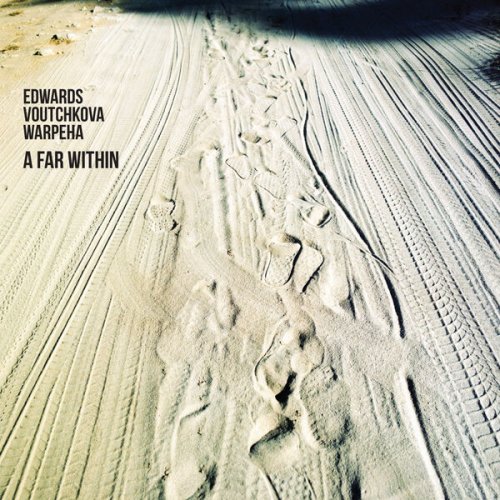
![Nicolas Collins & Birgit Ulher - Spark Gap (2026) [Hi-Res] Nicolas Collins & Birgit Ulher - Spark Gap (2026) [Hi-Res]](https://www.dibpic.com/uploads/posts/2026-01/1769148924_vicc2td18xrvc_600.jpg)
![Mike Campbell - Let The Music Play On (2026) [Hi-Res] Mike Campbell - Let The Music Play On (2026) [Hi-Res]](https://www.dibpic.com/uploads/posts/2026-01/1769151043_kuhulekwzp16a_600.jpg)
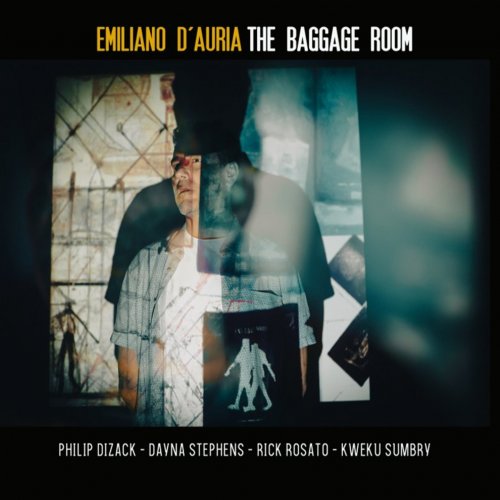

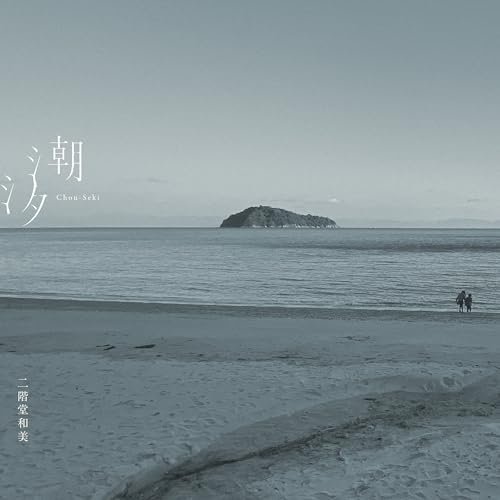
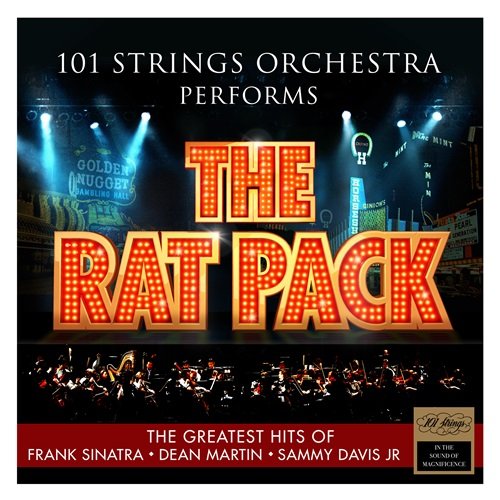
![VA - 50 Years of Jazztrack: Studio Sessions (2026) [Hi-Res] VA - 50 Years of Jazztrack: Studio Sessions (2026) [Hi-Res]](https://www.dibpic.com/uploads/posts/2026-01/1769259115_q2657kweg89kc_600.jpg)
![Celestial Planes - Objet Perdu (2025) [Hi-Res] Celestial Planes - Objet Perdu (2025) [Hi-Res]](https://www.dibpic.com/uploads/posts/2026-01/1769096532_cover.jpg)